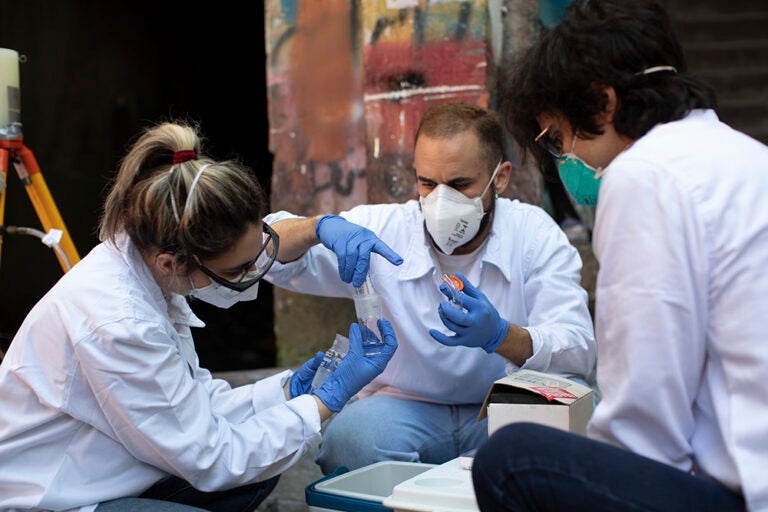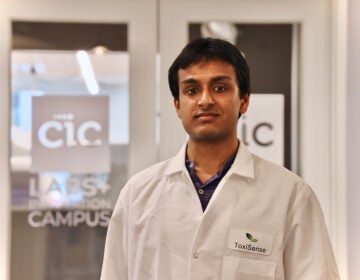Science and Medicine, Under Pressure
Listen 48:24
Researchers of the Rio de Janeiro State University prepare an instrument to sample airborne sewage droplets for the presence of the new coronavirus at the Santa Marta slum, in Rio de Janeiro, Brazil, Monday, July 27, 2020. The researchers are working together with volunteers of a local sanitation team to see if they can detect the virus in the air and evaporation from the slum’s open-air sewers. (AP Photo/Silvia Izquierdo)
The pandemic has put a lot of pressure on both our health care system and the scientific process — exposing weaknesses that have long existed, but only now become impossible to ignore. On this episode, we take a look at some of the hard truths that COVID-19 is revealing, and what can be done about them. We hear stories about America’s problem with drug shortages, how COVID-19 is affecting the lives of young doctors, and the devastating reality of racial health disparities in New Orleans.
Also heard on this week’s episode:
- President Donald Trump promoted hydroxychloroquine as a potential COVID-19 treatment in March, causing a surge in demand, and shortages for patients who needed it. But even before the pandemic, drug shortages have led to missed cancer treatments, and even deaths. Reporter Alan Yu talks with Rebecca Mosner, Ethan Daniels, Chip Davis from the Healthcare Distribution Alliance, Ryan Marable from Kroger and the National Pharmaceutical Association, Erin Fox from University of Utah Health, Rena Conti from the Boston University Questrom School of Business, Anne Pritchett from the Pharmaceutical Research and Manufacturers of America.
- Racial health disparities exist across the country — but in New Orleans, recently, ProPublica has found they led to the deaths of elderly Black patients who were sent home to die after contracting COVID-19. We talk with the investigative reporters behind that story, Annie Waldman and Joshua Kaplan.
- NYU medical ethicist Art Caplan talks about the importance of a slow and deliberate process in scientific research, even when the pressure for breakthroughs is great.
Segments from this episode
WHYY is your source for fact-based, in-depth journalism and information. As a nonprofit organization, we rely on financial support from readers like you. Please give today.






